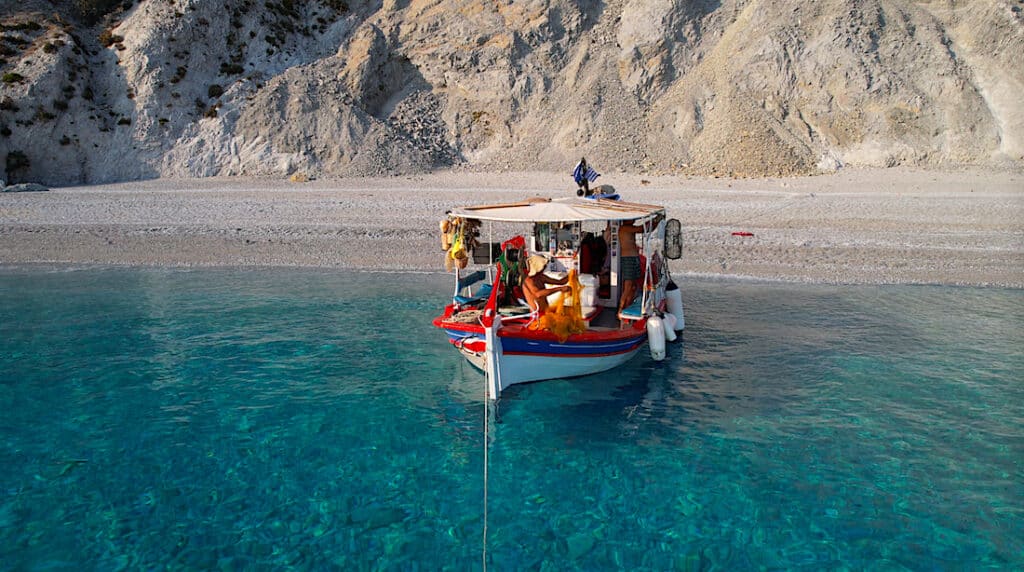

In a world obsessed with productivity and life hacks, the residents of Greece’s remote villages and islands hold a secret of slow living: nearly 30% of Ikaria’s population lives past 90, defying global life expectancy trends. How do they do that, you might ask. Well, it’s not through biohacking or some influencer-inspired remedy. The people of Ikaria and many other remote places in the Greek countryside achieve this through the ancient wisdom of the “art of living”, moving, and taking life at their own pace.
This deeply rooted philosophy in Greece’s cultural DNA offers a radical alternative to modern society’s urge for instant results and ultimate speed. As burnout becomes a global pandemic, the old Greek approach to savoring life’s simplest moments is becoming more relevant than ever, challenging us to reconsider what it truly means to live.
The concept of slow-living is not a traditional Mediterranean village custom, as you might think. It is indeed a worldview with roots stretching back to antiquity. Ancient Greek philosophers were the first to mention and praise this approach to life emphasizing eudaimonia (human flourishing) and sophrosyne (moderation). Aristotle’s Nicomachean Ethics, for example, argued that virtue lies in finding the “golden mean” between extremes.
Historical records reveal that the inhabitants of ancient Epidavros would spend hours in their agora, the city’s marketplace, where people met and exchanged views and stories. There, they would spend their time debating philosophy while nibbling on olives and cheese—a scene so strange to a modern society that’s used to rushed lunch breaks and never-ending emails. This tradition of slow social engagement was so embedded in Greek society that it survived through the Byzantine era and Ottoman occupation to modern Greece. It can be said that the modern kafeneio (coffee shop) culture of Greece, where villagers debate politics over slowly sipped Greek coffee, is a direct continuation of this ancient tradition.

Unfortunately, the 20th century nearly erased these traditions as urbanization became the norm in Greece. Jobs became so demanding that people had no time for such engagements. However, a counter-movement emerged in the 1980s.
When Carlo Petrini launched the Slow Food movement in Italy to protest fast food culture, many Greeks recognized the need to revive their traditional slow-living ethos.
That doesn’t mean that Greeks don’t work hard. On the contrary, Greeks work among the longest hours in the European Union. When combining both full-time and part-time employment, Greece tops the list with an average of 42.3 hours per week, according to Eurostat.

The rhythm of slow life on many Greek islands offers a clear guide to survive a fast-paced world and live in harmony with nature and yourself.
In an era of climate crisis and digital overload, the tradition of slow living in Greece offers a great alternative for sustainable living, prioritizing physical and mental well-being over a toxic work culture that dictates how to live rather than enabling us to live.
